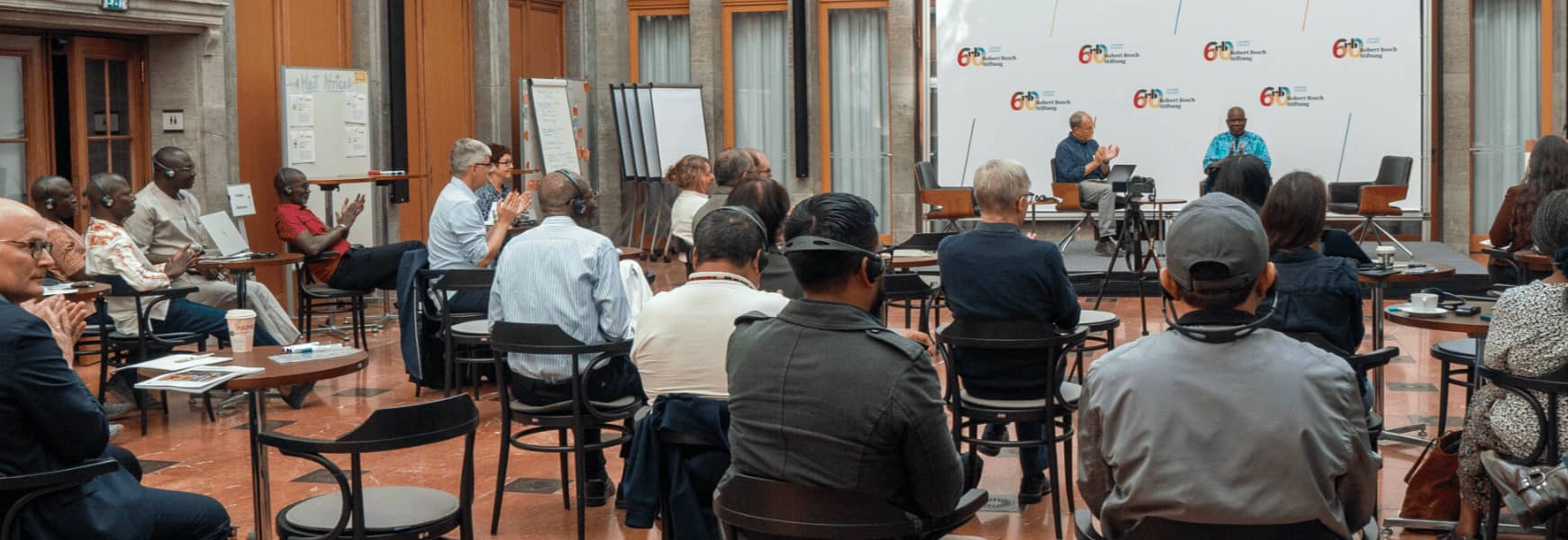Lessons from Our Global Conference in Berlin: Farmer-Led Innovation at the Center of Agroecology
In September, over 30 people from West Africa, South Asia, the Americas, and Europe gathered in Berlin, Germany for Groundswell International’s Global Conference, hosted by the Robert Bosch Stiftung foundation. Among them were leaders from our 14 NGO partners spanning 11 countries—from Burkina Faso to Haiti and Ecuador to India—along with our staff, board members, and global allies. Together, we shared lessons from the field, learned from local farmers and activists, and strengthened plans to transform global farming and food systems from the ground up through agroecology.
We tackled pressing issues such as centering farmers and their organizations in agroecological innovation and extension, regenerating soil health, and championing women and youth in agriculture. We left inspired by the stories of smallholder farmers shaping a hopeful future for agriculture. Read on for key highlights and insights from this event.
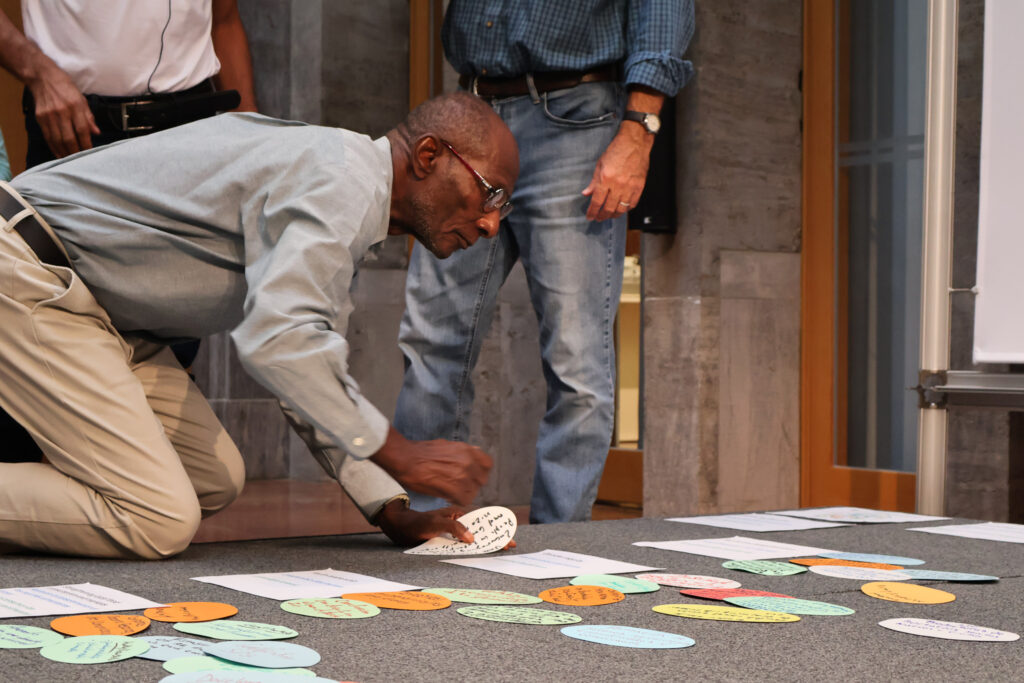
Day 1: Learning from the Ground: Farmer-Led Innovation in Soil Health and Water Management
The ability to regenerate the land is the “fertile ground” required to cultivate healthy farming and food systems. Indeed, healthy soil ecosystems are directly linked to community well-being. As soil quality improves, so too do agricultural productivity, food availability and security, nutrition, incomes, and overall prosperity for families.
Promoting farmer-led innovation to improve soil health is a priority theme for the Groundswell International network to improve community resilience and to transform landscapes and food systems. In our program areas, our partners work with farmer organizations to develop farmer field schools that promote learning by building on existing agroecological efforts. These schools allow farmers to experiment and adapt practices to enhance soil life and productivity in their local contexts. They test practices like reducing tillage and disturbance of soil and roots, increasing diversification of crops on farms, using locally produced microorganisms, and using and saving Indigenous seed varieties. Effective practices are then spread through farmer-to-farmer networks.
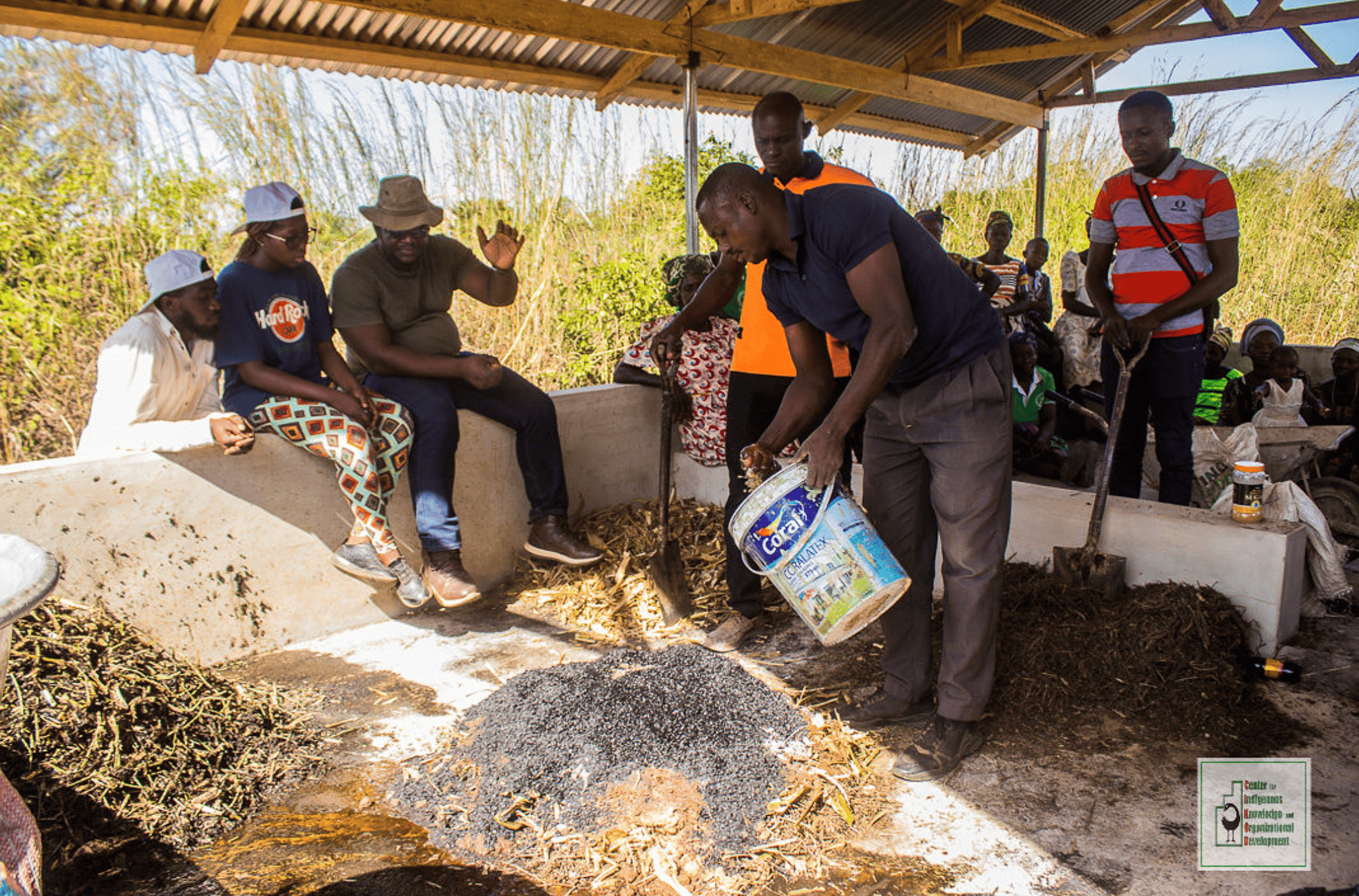
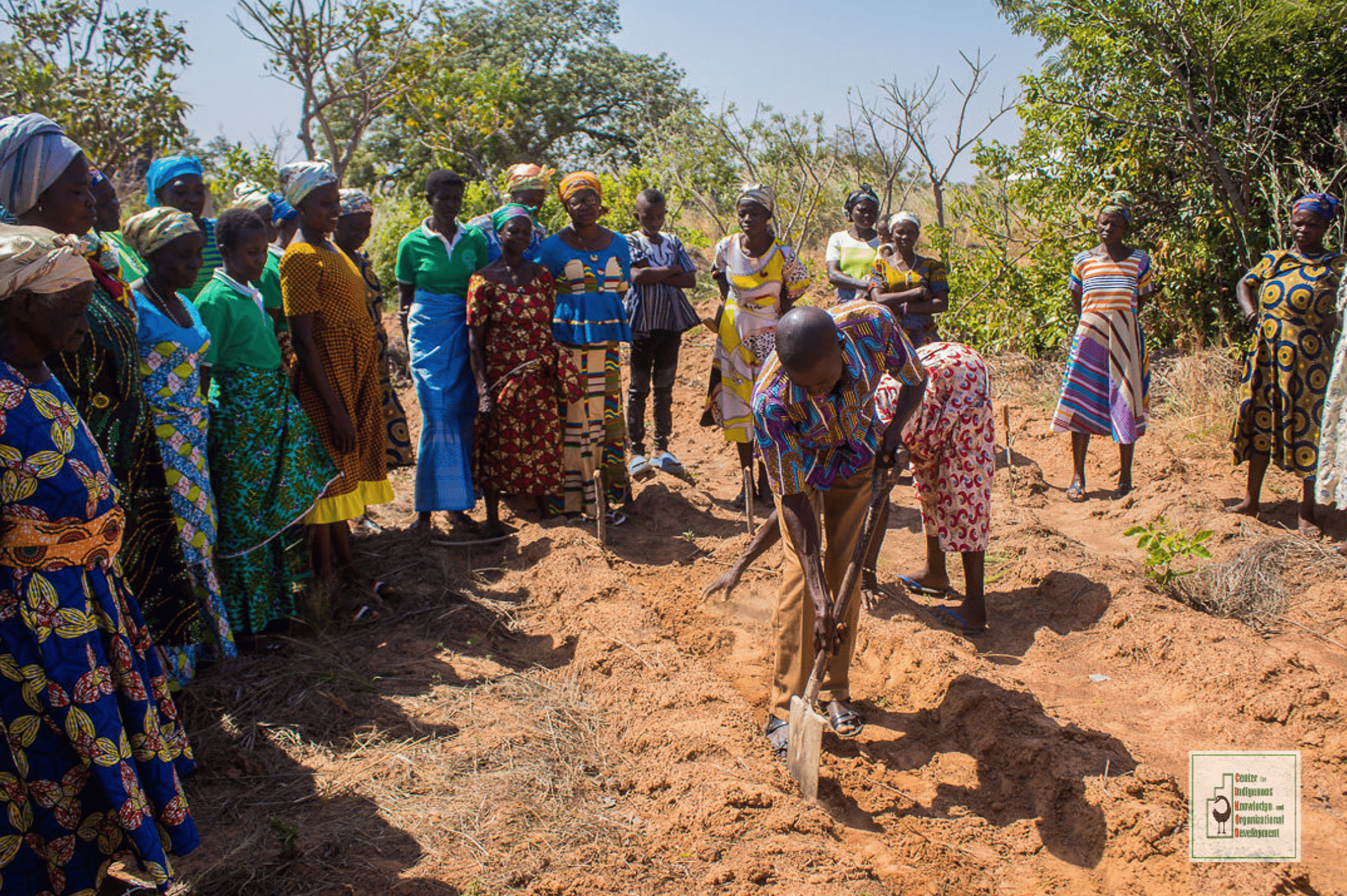
Partners from Mali (Sahel Eco), Ghana (CIKOD), Honduras (Vecinos Honduras), and Nepal (BBP Pariwar) shared farmer and community-driven innovations to restore soil health and conserve water resources. For example, in West Africa, farmers are restoring soils through the natural regeneration of trees to create diversified agroforestry systems. They are also using improved composting methods to generate organic fertilizers in weeks rather than months. In Honduras, farmers visually assess soil health by examining nine key indicators to determine which farming practices are most effective for improving the soil:
- Soil structure
- Porosity
- Organic matter
- pH levels
- Root depth
- Soil cover
- Soil conservation
- Worms
- Texture
This practical approach helps farmers make informed decisions about soil management to sustain long-term fertility on their land. Simple tools, such as “spider web” diagrams, allow farmers to visualize and share these results with each other, learn, and plan next steps.
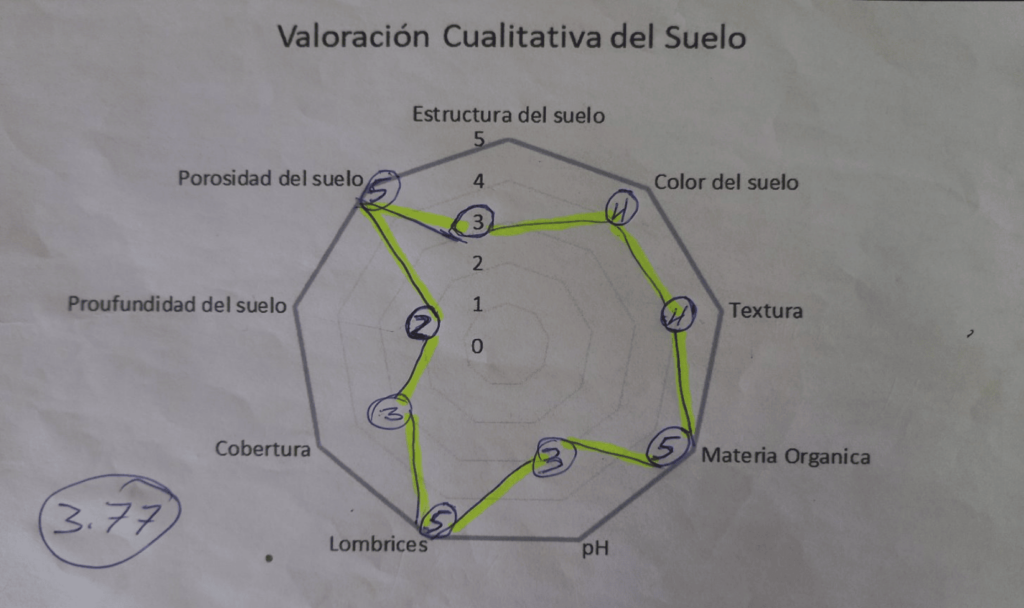
The conference provided a valuable opportunity for partners to learn how their peers in different countries are tackling soil health challenges, exchanging successful agroecological practices that they can adapt and scale in their own regions. This cross-border knowledge exchange is at the heart of the Groundswell International network, facilitating collaboration and innovation between regions to build more resilient farming systems globally.
Day 2: Women’s Empowerment in Agriculture and Rural Life
“Empowerment” is a tricky word. What does it mean in practical terms, especially regarding women in agriculture? This is another priority theme for action-learning across the Groundswell International network. At our Global Conference, we explored this question more deeply, reexamining how we define women’s empowerment, why it’s essential, and the strengths and gaps in our programs and how to address them.
Empowerment goes beyond mere participation in program activities. Women need access to the tools and autonomy to shape their own futures. Empowerment is also about creating deep, systemic change in mindsets and community structures.
Based on our field experience, we synthesized that women’s empowerment includes the ability to:
- Lead in decision-making processes at family, community, and regional levels.
- Achieve social and economic independence.
- Access critical resources like land, credit, seeds, water, and education.
- A feeling or state that women have claimed for themselves: empowerment emerges when women feel a sense of agency and control over their lives rather than just implementing a set of activities or practices.
“Empowerment comes from within. We don’t decide when women are empowered; it is something they claim for themselves through leadership, self-awareness, and control over resources.”
–Rebecca Wolff, program director
In Haiti, women like Rosénie are already stepping into key leadership roles and realizing the impact it has made on their lives. Once sidelined in community decisions, Rosénie now leads a peasant association in Cannabis after receiving training and support in group formation, agroecology, and public speaking from our local partner PDL. Equipped with new skills and confidence, she has become a role model and source of inspiration for others. Rosénie says:
“I gained confidence in my abilities and now play a leadership role in Cabanis. I feel more positive and humane in my relationships with my family and other families around us.”
Supporting women like Rosénie to feel empowered requires training and a cultural shift in how women are valued and involved in all aspects of agricultural and community life. We’ll soon share an article further explaining the insights from this important session. Subscribe to our newsletter to know when it’s available!
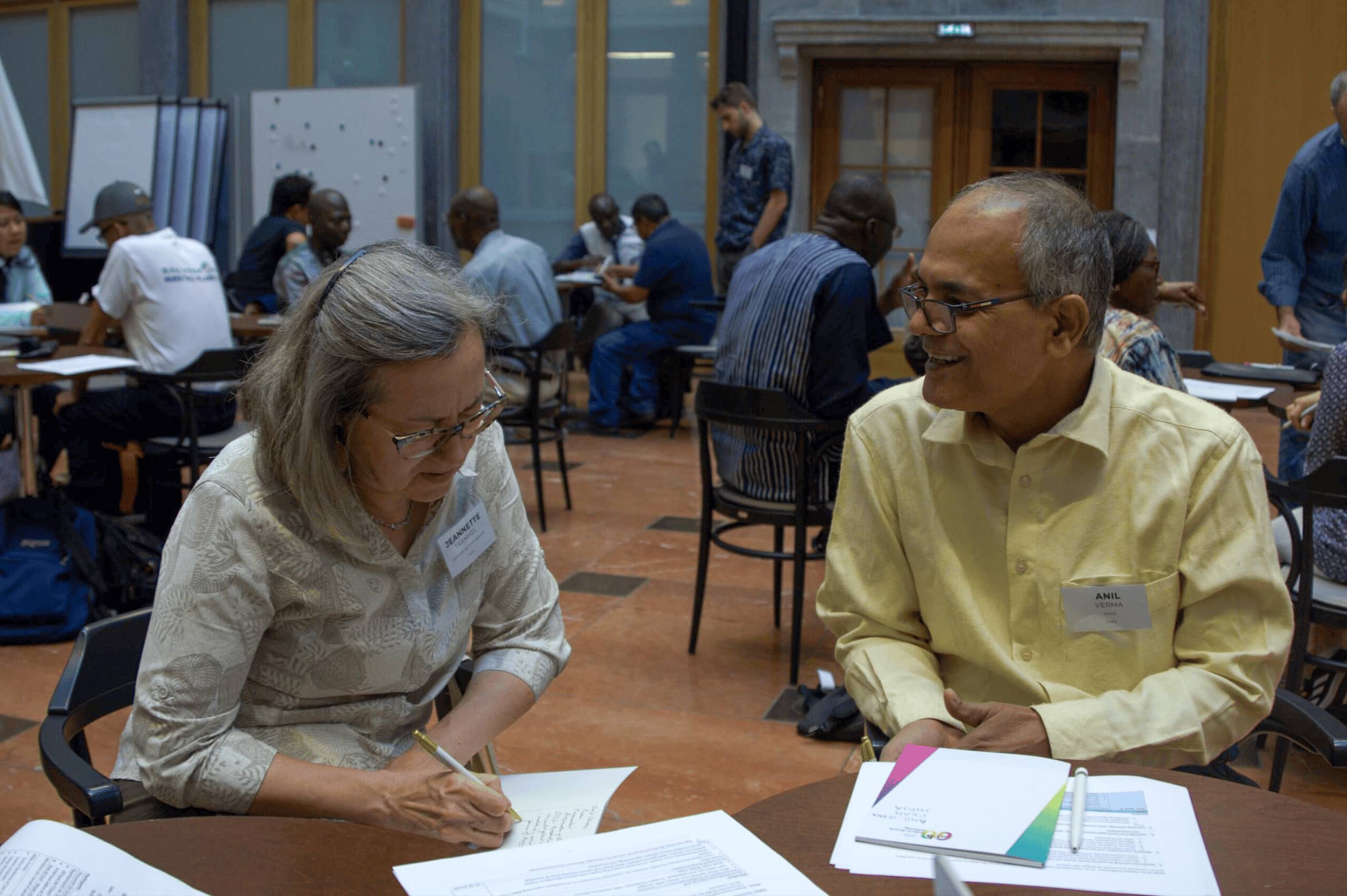
Day 3: Regenerative Farming in Berlin: Community-Supported Agriculture, Farmer Organizations & Advocacy
To draw lessons from agroecological farming in Germany, we visited SpeiseGut, a community-supported agriculture (CSA) farm just outside Berlin.
Christian, who has been farming for 27 years, founded this farm with just €2,000. His farming philosophy, “Every day is a learning experience,” perfectly illustrates the concept of agroecology: farming as a continuous process of learning, adapting, and experimenting with nature.
Consumers pay an annual subscription fee to participate in Christian’s CSA model, and receive weekly boxes of fresh, locally grown produce. The quantity of produce per box varies depending on seasonal yields, and consumers share the risks of lower yields out of solidarity with the farmer. This model helps farmers predict annual sales and promotes community support for regenerative farming practices.
We also heard from an organization of small-scale farmers in the Berlin area seeking access to land, inputs, and markets, and we met with representatives of a Food Policy Council working to shape local governance for healthier farming food systems. The visit provided fresh insights from a different context for our partners worldwide promoting similar strategies in their countries.
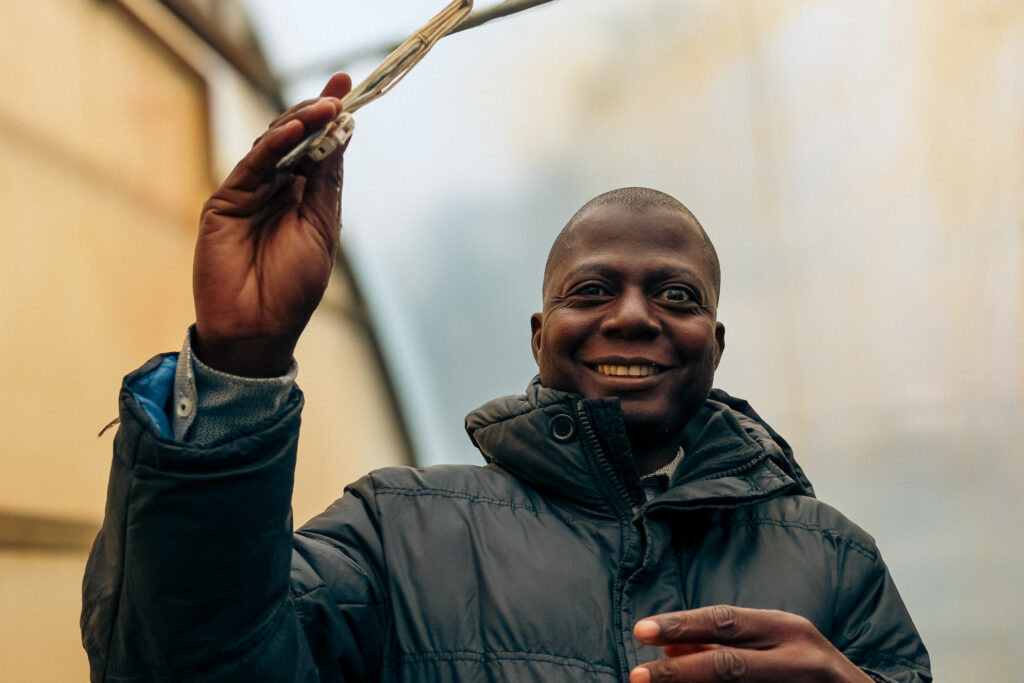
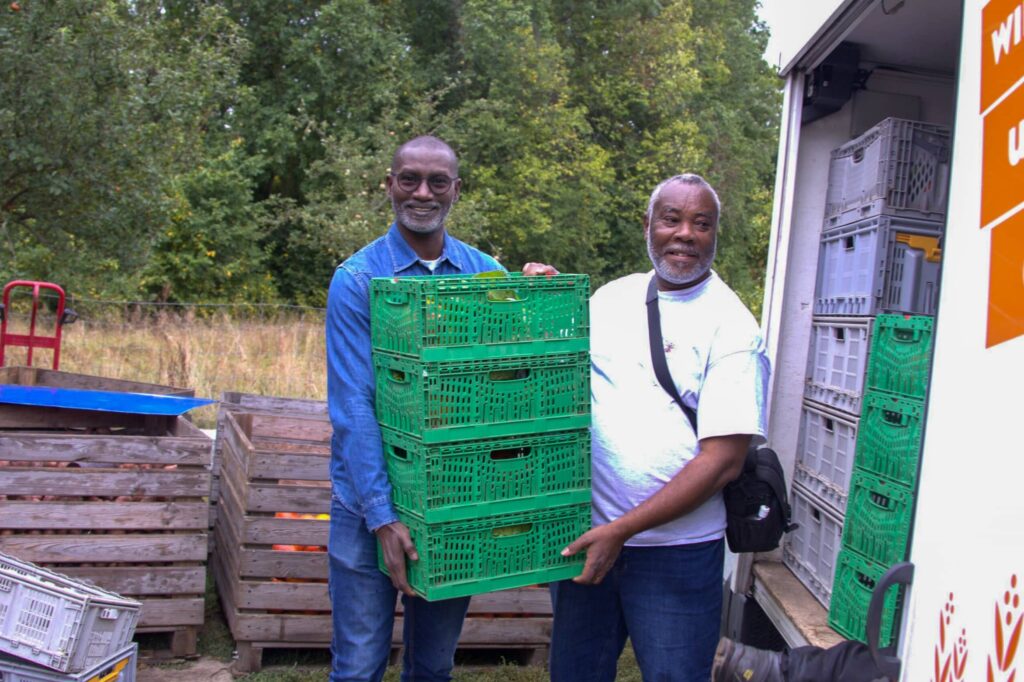
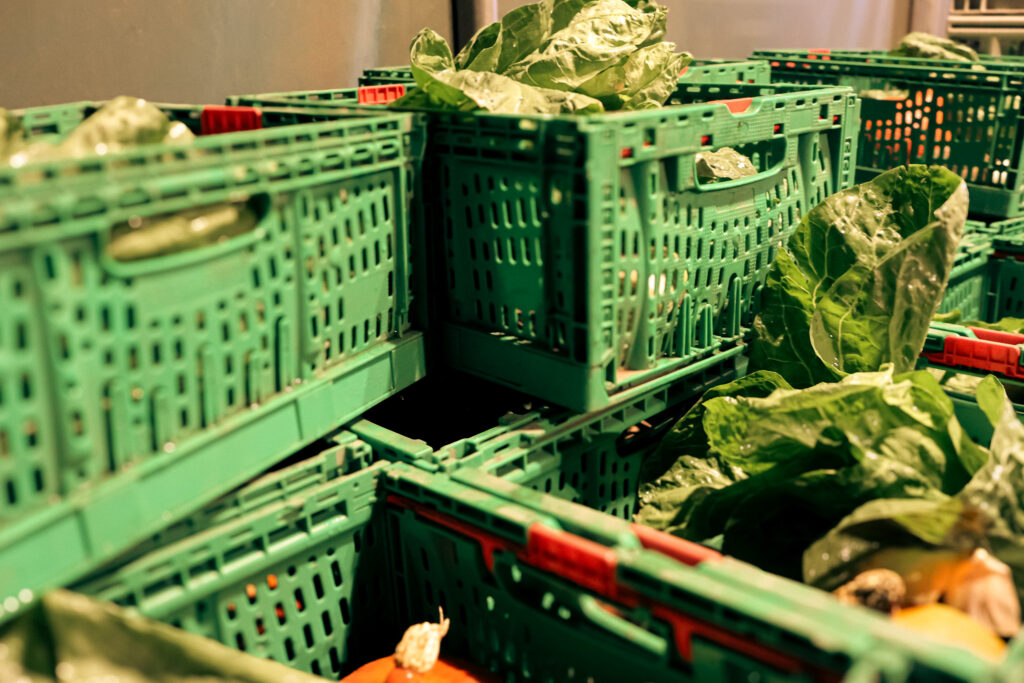
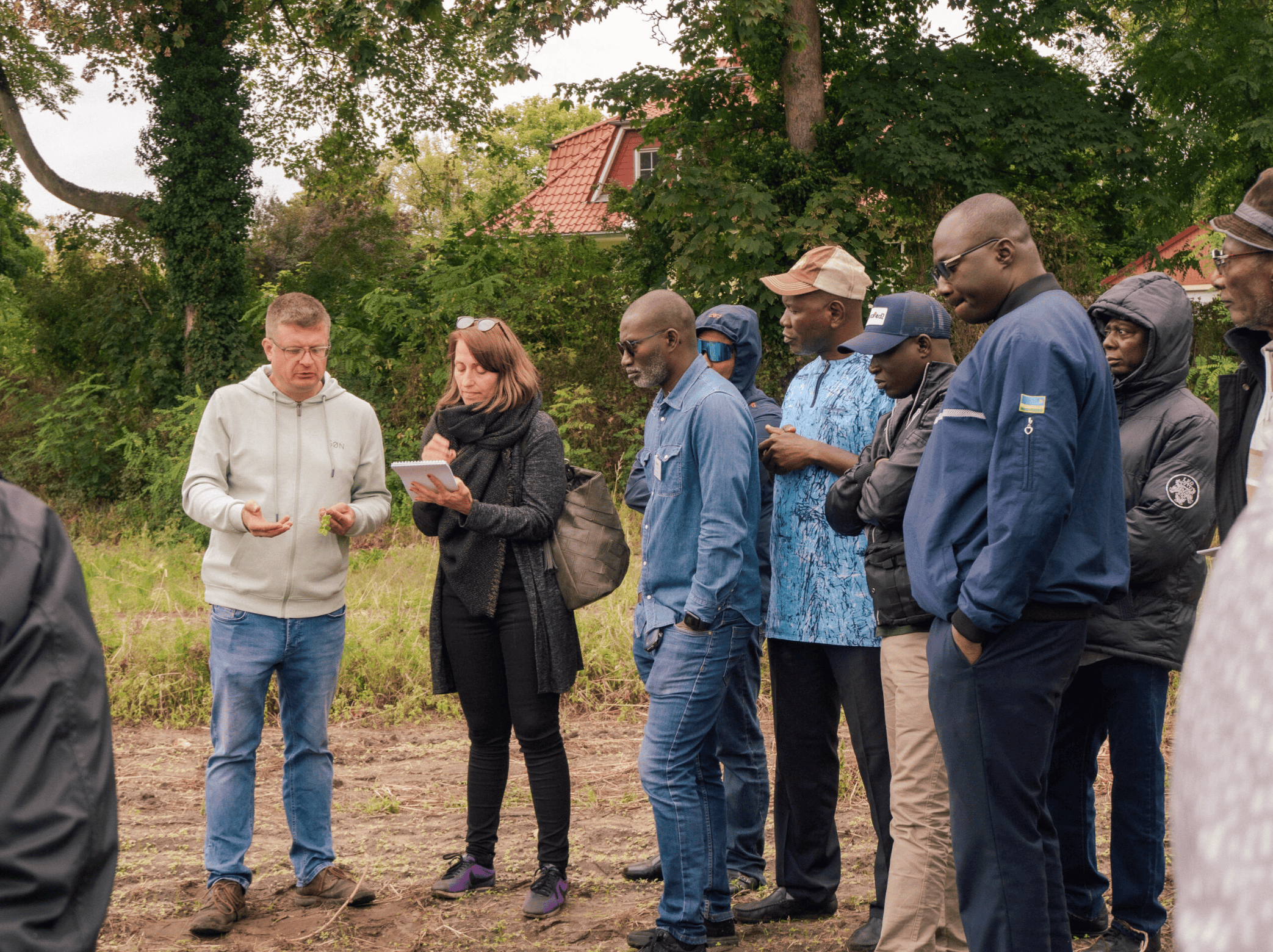
Day 4: Centering Farmers in Innovation & Extension: Unlocking the Transformative Power of Agroecology
We hosted a public Learning Exchange Event to let our partners share lessons and meet with key stakeholders. Attendees from the German government and civil society organizations like GIZ, private foundations, NGOs, and think tanks gathered to explore real-world examples of farmer-led experimentation and innovation driving the transformation of local and global food systems. The opening panel was moderated by Bettina Hausmann from the McKnight Foundation’s West Africa Program.
Groundswell International’s Executive Director, Steve Brescia, highlighted in his opening remarks, “There is no agroecology without strengthening the agency of farmers.” This foundational principle of co-creation of knowledge means placing smallholder farmers at the center of agricultural innovation, allowing them to test, adapt, and develop agroecological practices that meet the unique needs of their communities and spread them via farmer-to-farmer networks.
As a basis for our dialogue, we had asked each of our 14 NGO partners to document and present brief case studies on how they are centering farmers in agroecological innovation and extension. They responded to four questions:
- What organizational strategies are used to promote farmer learning and innovation?
- What technical innovations are most effective in their context?
- What strategies are used to spread effective practices to more farmers and communities?
- What are the next steps?
Each case study offered insights into how agroecological principles and farmer-centered innovation are applied in different local contexts, sharing key successes and challenges — access 80+ pages of farmer learnings and stories in this free public version.
“There is no agroecology without strengthening the agency of farmers.”
Steve Brescia, Groundswell International Executive Director
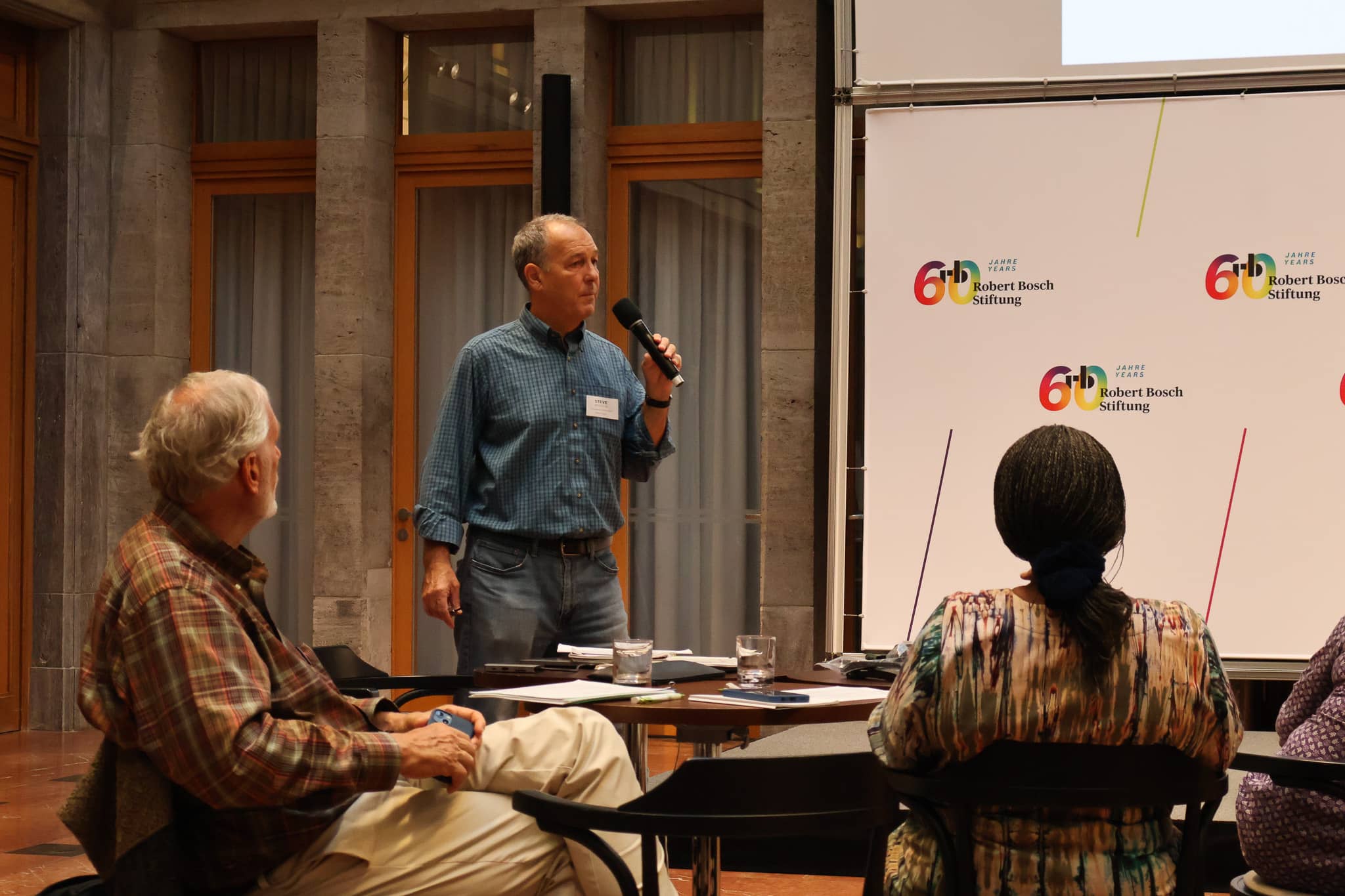
How are communities leading agroecological innovation & extension?
Case studies revealed some common themes among regions:
Social organization is vital for innovation and scaling
Farmer experimentation and innovation are led by organized groups of farmers interacting with promoters, NGO staff, and scientists. When effective alternatives are identified, they are spread through farmer-to-farmer networks for extension and research.
Baskets for experimentation vs. packages of agroecological practices
Common challenges for farmers include managing soils, water, seeds, diversity, and market access. By identifying effective options in the local context– “baskets of agroecological practices” – farmers can decide which ones are most relevant to their needs, test them, and adapt them to their contexts.
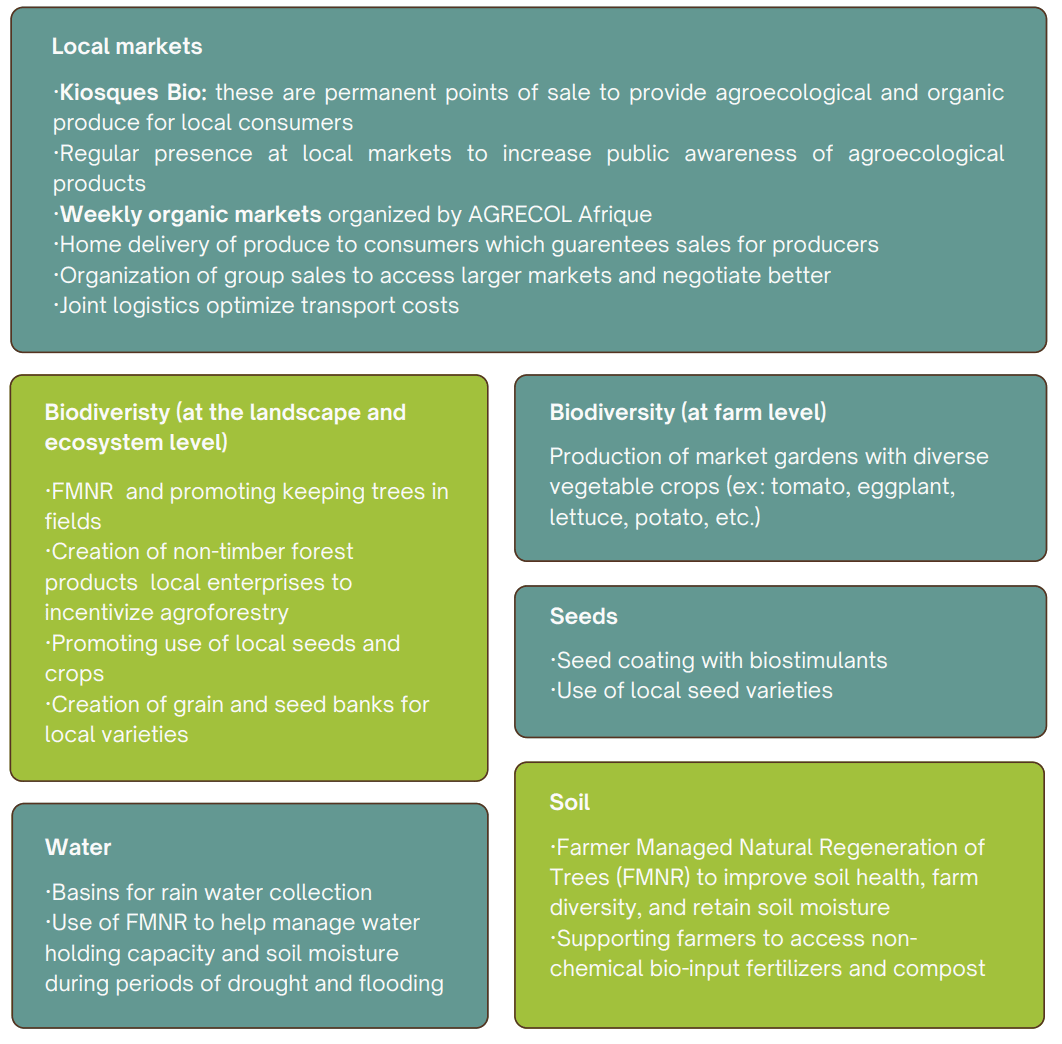
Example of a basket of agroecological practices
Farmers use a combination of methods they can adapt to their specific context and needs.
Scaling agroecology out, up, and deep
Grounded examples from our 14 NGO partners highlighted different levels for scaling agroecology. Bettina Hausmann emphasized that to unlock the transformative power of agroecology, scaling effective practices must happen over three dimensions:
Scaling out: spreading agroecological practices to reach more farmers and communities, often through farmer-to-farmer training, learning networks, and linkages between community agroecology committees.
Scaling up: working to influence policies and shape local markets that create an enabling context for agroecology. This involves collaborating with governments and civil society allies to ensure that agroecological principles are included in national and regional agricultural plans.
For instance, in Bihar, India, the local NGO PRAN worked with over 14,000 marginalized women farmers to promote the System of Root Intensification (SRI) technique, significantly increasing crop yields and improving food security. By involving the Ministry of Agriculture in their field trials and encouraging them to meet with women farmers to hear their stories directly, PRAN has amplified the reach of agroecology in Bihar and other states in India and increased government resources directed toward supporting these practices.
Scaling deep: shifting the mindsets of farmers, government officials, and communities. Men, women, and youth are central to supporting this mindset shift and transferring knowledge and opportunities to future generations.
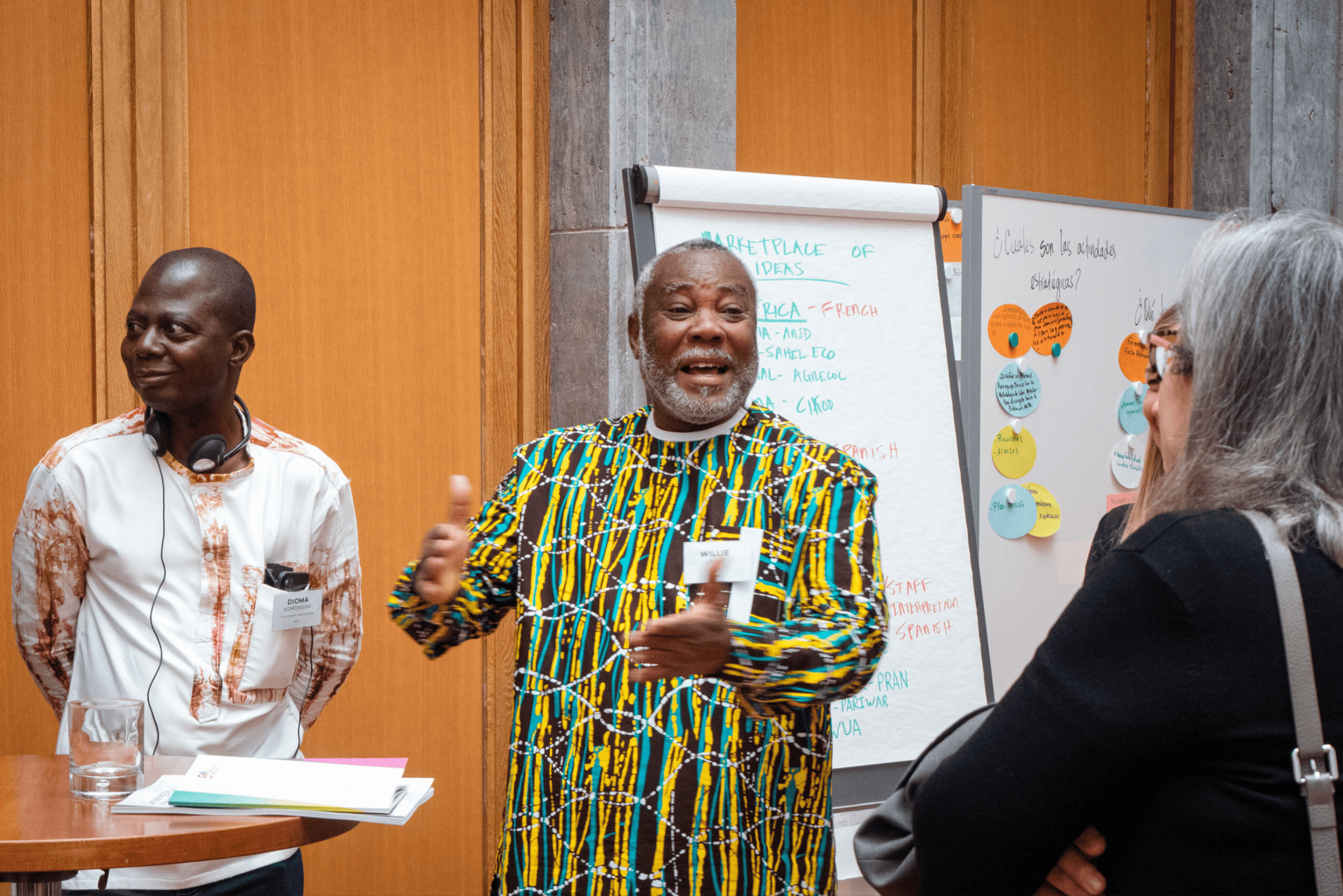
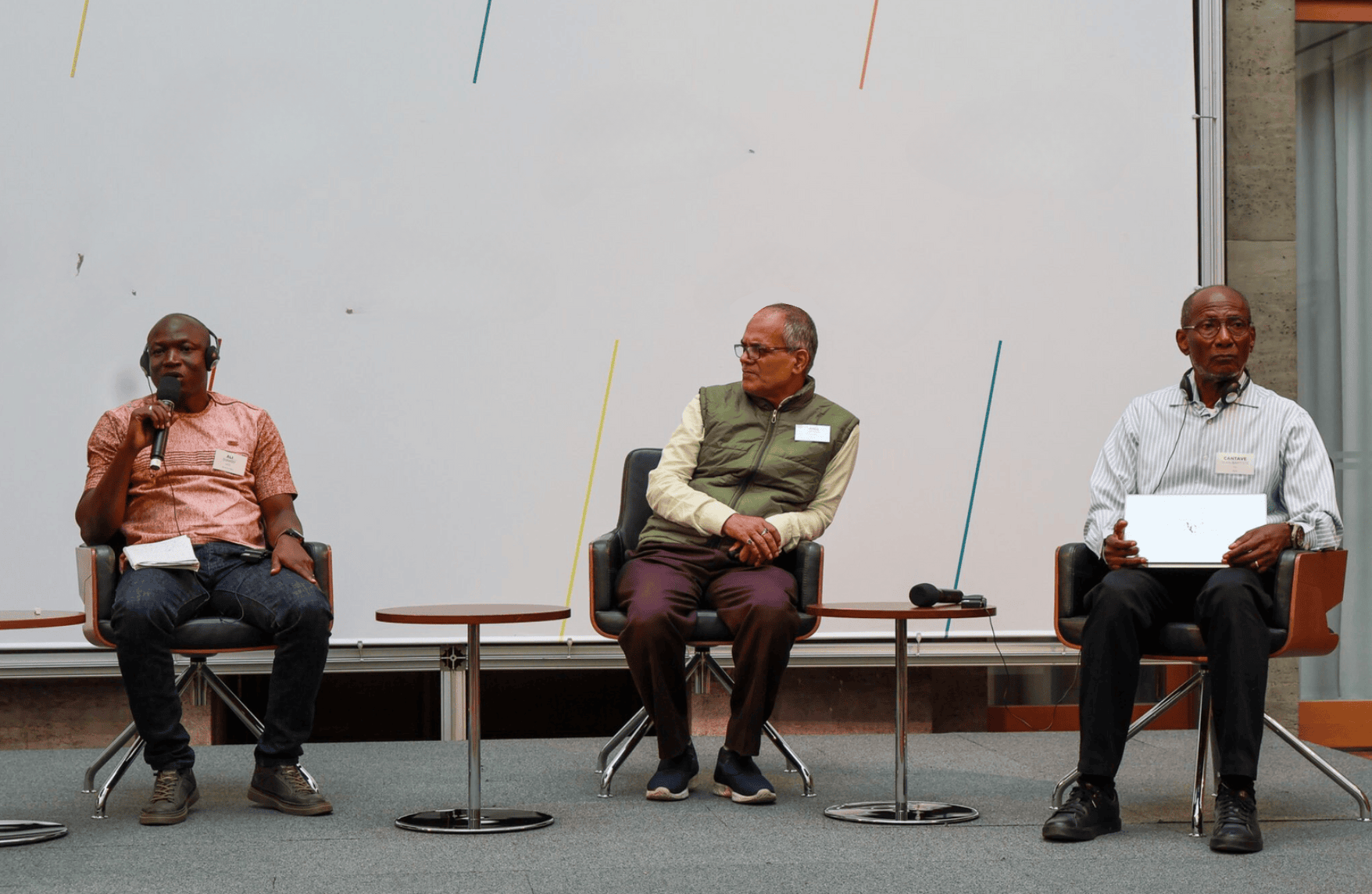
Looking to the Future
Christian noted during our field visit that “Agricultural knowledge can’t be learned from a textbook alone.” On-the-ground experimentation and real-time adaptation enable farmers and communities to build resilience to climate change while overcoming poverty and hunger. Smallholder farmers’ organizational capacities and valuable knowledge of the land, ecosystems, and cultures are a powerful platform to create a better future for people and the planet.
As we move forward, to truly unlock the transformative power of agroecology, we must:
- Continue to invest in farmer-led innovation and extension.
- Regenerate soil health as a foundation for healthy farming and food systems.
- Strengthen collaborations with governments to shape enabling policies.
- Scale agroecology out, up, and deep, shifting mindsets and narratives.
- Strengthen leadership roles for women and youth.
“Our global conference re-energized us and inspired us. By gathering together every two years from around the world, we continue to build knowledge, solidarity, capacities, and plans to catalyze real solutions and systems change from the ground up.”
-Steve Brescia, Groundswell International Executive Director
Join the farmer-led movement
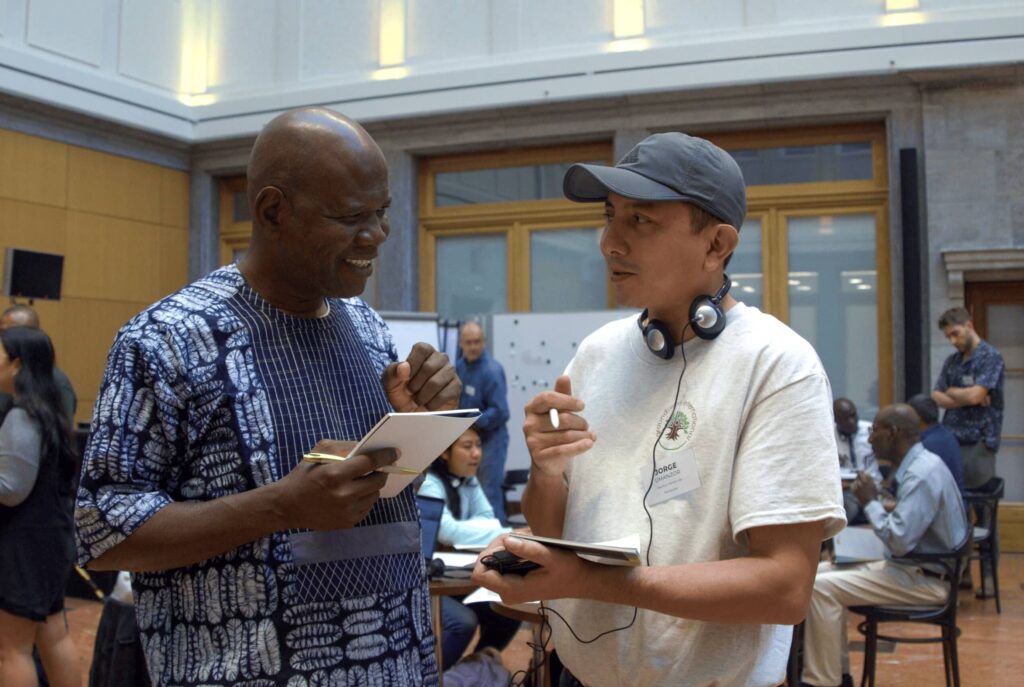
As donors and supporters, your contributions make this work possible. Whether it’s funding a training session for women in Haiti, supporting youth leadership in Mali, or investing in farmer-led research, your support, no matter the amount, matters. Donate today to support the farmer-led movement.
We extend our sincere gratitude to the Robert Bosch Stiftung for hosting Groundswell International’s global conference and to our generous event sponsors, the Goldin Group, the Mortenson Family Foundation, and the WOKA Foundation.

